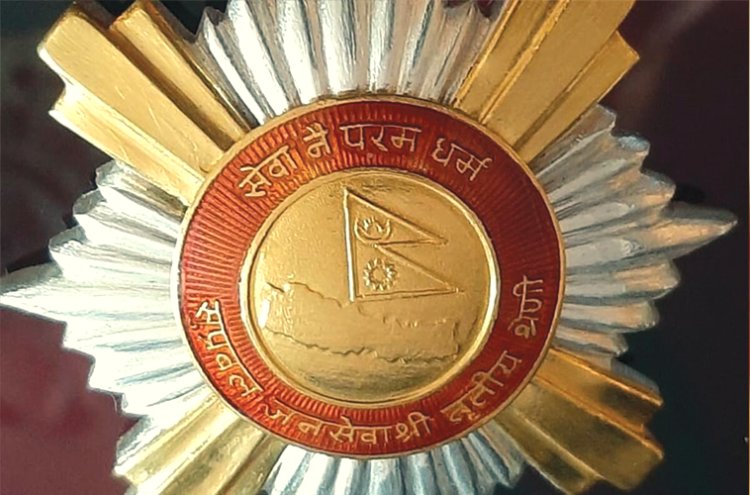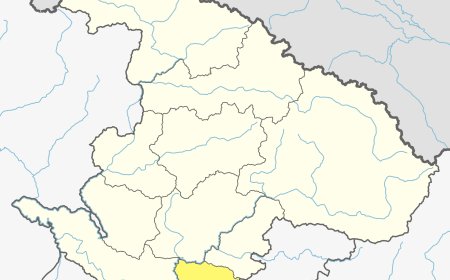Nepal Ratna Man Padavi: Nepal's Highest Civilian Honor
Discover the Nepal Ratna Man Padavi, Nepal's highest civilian award, honoring exceptional contributions to the nation. Learn about its history, symbolism, and prominent awardees.

Introduction
Nepal, a land of immense cultural and natural beauty, has a tradition of honoring its most distinguished citizens through various awards and recognitions. Among these prestigious honors, the Nepal Ratna Man Padavi stands out as the highest civilian award. Instituted in 2010, this accolade serves as a symbol of the nation's gratitude for the exemplary contributions made by individuals to Nepal's society, culture, politics, and various fields of endeavor.
Historical Evolution
The roots of the Nepal Ratna Man Padavi can be traced back to the Order of Tri Shakti Patta, which was established by King Tribhuvan of Nepal on 27th November 1937. This order had five classes, with the first class, known as "Jyotirmaya-Subikhyat-Tri-Shakti-Patta", being the most prestigious civilian honor of its time. However, with the end of the monarchy in Nepal in 2008, a new era dawned, and the government decided to revamp this award to better reflect the nation's republican identity.
Nepal Ratna Man Padavi
Since its institution, the Nepal Ratna Man Padavi has become the highest civilian recognition in Nepal, symbolizing the country's appreciation for the contributions of its citizens. The recipients of this prestigious award are chosen by the government of Nepal and are honored on Republic Day, which falls on May 29th. The President of Nepal confers the award in a ceremony that pays tribute to the outstanding service and achievements of the awardees.
The Design and Symbolism
The decoration of the Nepal Ratna Man Padavi is a true work of art. It is an octagonal medallion with a diameter of 8.5 cm. What makes it truly special is the inclusion of five diamond pieces adorning each corner, symbolizing the rare and exceptional qualities of the recipients. The design represents the essence of Nepal, a nation known for its natural beauty, cultural heritage, and the brilliance of its people.
Diverse Awardees
The Nepal Ratna Man Padavi has been bestowed upon individuals from various walks of life, reflecting the diversity of talent and dedication within the country. Recipients come from fields such as politics, social work, literature, science, and art, among others. Each awardee has left an indelible mark on Nepal, contributing to the nation's growth and development.
Prominent Awardees
Over the years, several distinguished individuals have received the Nepal Ratna Man Padavi, including:
- Ganesh Man Singh (2010): A prominent figure in Nepal's democracy movement, Ganesh Man Singh played a crucial role in the fight for democracy and human rights.
- Girija Prasad Koirala (2015): A respected politician and statesman, Koirala served as the Prime Minister of Nepal multiple times and was a key figure in the country's political landscape.
- Madan Kumar Bhandari (2016): Known for his dedication to the Communist movement, Bhandari was a visionary leader whose influence extended beyond his lifetime.
- Bishweshwar Prasad Koirala (2018): A revered figure in Nepal's political history, Koirala's contributions to the nation's democratic ideals are celebrated.
- Pushpa Lal Shrestha (2019): A founding figure of the Nepali Congress and an advocate for democracy, Shrestha's contributions to Nepal's political landscape are deeply honored.
Conclusion
The Nepal Ratna Man Padavi stands as a shining testament to the remarkable achievements and contributions of individuals who have dedicated their lives to the betterment of Nepal. It represents the nation's gratitude and respect for those who have left an indelible mark on its history, culture, and progress. In honoring these exceptional citizens, Nepal continues to celebrate the essence of its identity and the spirit of its people.
What's Your Reaction?





































































































